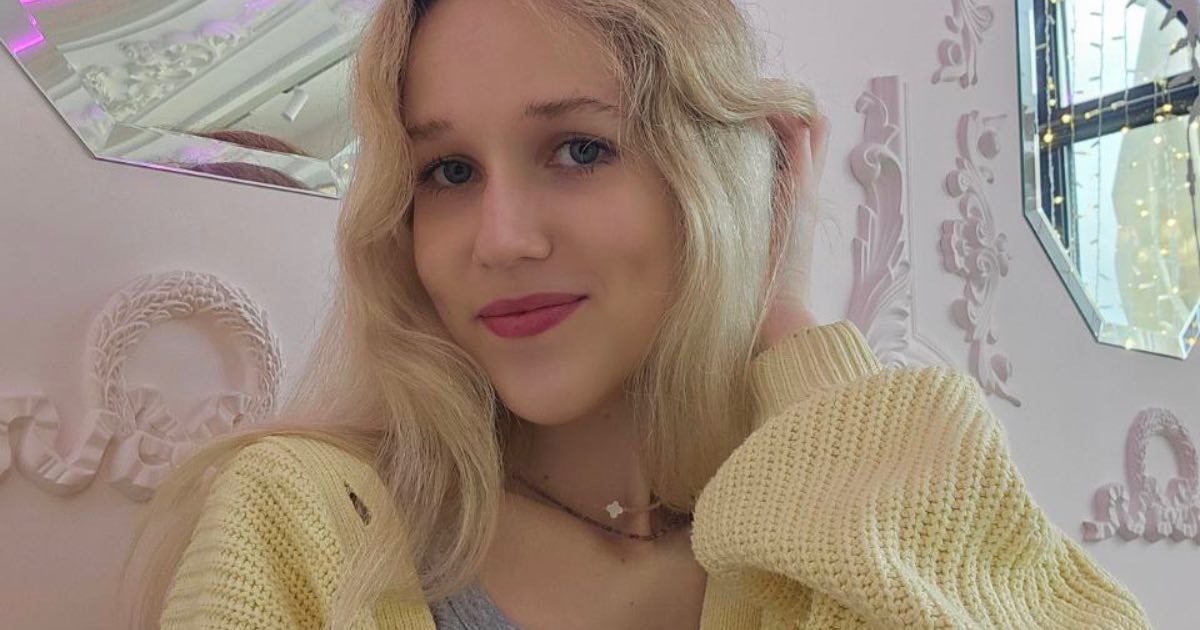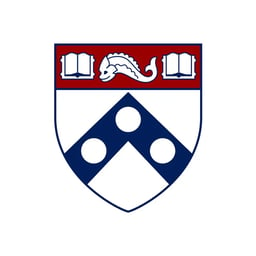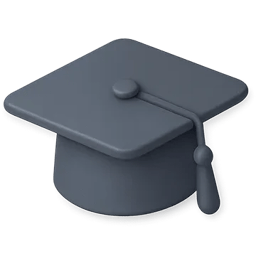Кристина — выпускница старшей школы из Беларуси, г. Минск. К семнадцати годам она стала выпускницей Йельской летней школы, доказала предпринимательский талант на практике и… поступила в Уортонскую школу бизнеса Пенсильванского университета на полное финансирование. Все её траты, включая перелёт, оплачивает программа «Opportunity». Кристина поделилась с Borderless историей своего поступления в школу бизнеса, замыкающую тройку лучших со всего мира.
С чего начался твой путь?
В 8-7 классах все начали говорить о своих планах после школы. Тогда я никогда не рассматривала белорусские вузы, хотела учиться в англоязычной среде. Где, как и почему - меня не волновало.
Летом после 9-го класса я наткнулась на TikTok белорусской студентки, которая поступила в Rhodes College на полный грант. Европу я не рассматривала, так как там практически невозможно покрыть все свои расходы стипендией, будучи студентом бакалавриата.
И все же я ничего не предпринимала до весны 9-го класса. Все изменилось, когда я стала подавать документы на инт. программы. Первой стала NYAS, и она проходила онлайн. Затем, когда я училась в 10-м классе, я узнала о программе Yale Young Global Scholars, куда я поступила.
Что касается ресурсов, то я не уверена, что могу посоветовать что-то конкретное. Я была довольно активна в русскоязычных сообществах Telegram. Знания накапливались по мере того, как я искала в Google или предпринимала реальные действия: готовила документы, подавала заявки... Кроме того, ресурсы Borderless очень помогли мне при заполнении профиля CSS.
Когда я начала участвовать в международных программах, я завела знакомства с иностранными студентами, решившими учиться за границей. Мы до сих пор поддерживаем связь! Тогда я узнала больше всего информации о процессе поступления от них :)

Yale Young Global Scholars
Я узнала о Yale Young Global Scholars, изучая летние программы. Это был конец моего 9-го класса. Я искала те летние школы, которые могли бы предоставить мне полную финансовую помощь. YYGS была в их числе. Более того, это был первый год после ковида, когда YYGS проводилась не онлайн, а офлайн. Это был знак, что нужно подавать документы!
Я знала о сроках, но думала, что не успею подать документы в Early Decision. Я учусь в математическом классе, поэтому поддерживать высокую успеваемость и одновременно подавать документы было проблематично. Я подумала о том, чтобы подать документы через Regular Decision. Моя белорусская подруга тоже подавала туда документы, и мы пообещали друг другу, что подадим документы через Early Decision... и нам удалось это сделать!
Процесс поступления в Летнюю школу Йельского университета похож на процесс поступления в бакалавриат. Вам нужно написать основное эссе на 400 слов, несколько более коротких эссе, несколько ответов "на скорую руку" (~50 символов), а также описать 3 вида деятельности и 5 наград.
Вся моя заявка была связана с бизнесом и экологией: многие мои проекты связаны с этими двумя областями. Полагаю, то, как инновационно я это преподнесла - что я могу сделать что-то масштабное для целого, повлиять на мир, - стало ключевым фактором в моем принятии. Но в заявке на участие в летней школе не было такого большого акцента на то, что я изменю мир: традиционно в заявках на участие в летней школе к абитуриентам предъявляются более низкие требования, чем при поступлении в университет.
Программа длилась две недели. У меня были лекции, семинары и, конечно, время, проведенное со студентами - занятия со студентами проходили вне основной учебной программы. У меня было много курсов по искусственному интеллекту, machine learning. Другие занятия были связаны с экологией: здоровье, еда, потребление и сокращение потребления в целом. Это круто: я пришла углубить свои знания, и программа мне очень помогла.
Если говорить о комьюнити, то мы до сих пор общаемся! Например, моя подруга из YYGS (она поступила в Yale' 28) попросила меня помочь разработать дизайн для ее волонтерской организации, официально зарегистрированной в США. Кроме того, большинство людей, с которыми я познакомилась, поступили в Топ-10 и Топ-20 через QuestBridge и ED.
Вот некоторые из моих других международных программ:
NYAS '22, TKS '22, (около 15%), Stanford The Daily '22, BYond '23, BCCC '22&23, YYGS '23 (около 20%), HUIRS '23, Georgetown pre-college '23, Opportunity '23-24.
Хочу подчеркнуть, что только программа Opportunity Funds была в списке моих заслуг. Я подала заявку и участвовала в программах ради опыта, не надеясь "поднять свои шансы на поступление в колледж". Только с таким настроем вы сможете извлечь максимум пользы из подобных программ.

Список университетов
Очень многие ожидали, что я подамся в Йель на ED. Я благодарна за опыт в Йеле, было круто и полезно, но сам университет мне не сильно запал в душу:
(1) там нет бизнеса — только экономика, а это не совсем то, что я хочу изучать. Хоть я и подавалась в некоторые университеты на экономику, там была возможность брать майнор, связанным с маркетингом, чем-то ещё, что как-то разбавило бы гору математики, чего-то более академического. А в ЮПенн у меня будет концентрация в бизнес-аналитике — это позволит мне выплёскивать креатив, идеи и так далее. В Йеле такого бы не было: там нет ни майноров, ни возможности изучать именно бизнес.
(2) там только Restrictive Early Action, так что я бы не смогла податься ни в один другой универ на раннюю подачу. Для меня gap year не был вариантом, поэтому в итоге я подала в 12 университетов:
UPenn (ED, полное финансирование);
Drexel (ЕА, приняли с 40% scholarship);
Minerva (поступила по ЕА с максимальной scholarship);
Etwon (45% scholarship по ЕА);
Simmons (50% scholarship по ЕА);
UWC (прошла первый тур);
Также были университеты по ЕА, куда я успела продать и откуда отозвала заявку после поступления в Пенн:
Berea;
Centre;
Puget Sound;
UNC;
Lingnan;
Washington and Lee.
Самый социальный университет
UPenn — самый социальный вуз Лиги плюща. Хотя, если честно, когда я выбирала, то не смотрела на то, Ivy это или нет. У вообще с самим понятием Лиги плюща интересная история. До момента подачи моей знакомой на ED в Dartmouth, я не знала, что Dartmouth— Ivy. Так что я не изучала стереотипы и традиции Лиги плюща, однако многие говорят, что Пенн — самый социальный университет. Это представление произрастает из большого количества предпрофессиональных клубов (у меня у самой и стажировки, и работа в прошлом и сейчас, что тоже подбивает интерес развиваться и в академической, и в профессиональной среде. Многие другие университеты, которые фокусируются на академической части, не предоставили бы мне возможности профессионального развития). Кроме локации, мне нравится то, что я буду учиться в городе. Филадельфия небезопасна, но, тем не менее, учеба в городе предполагает доступ к карьерным возможностям и летним стажировкам прямо в Филадельфии.
Кстати, территория у кампуса безопасная, но, как бы то ни было, существует приложение Citizen, которое показывает, где безопасно, а где — нет.
В любом случае, в эссе про локацию не надо писать. Самая главная причина моей симпатии — только в Пенне я увидела клубы, непосредственно связанные с Экологией и ещё некоторыми сферами, которые мне нравятся.

School profile для государственной школы
Я училась в государственной школе. С прошлого года в Минске вообще нет частных школ. Даже если бы я училась в частной школе, это не повлияло бы на мое поступление. После 5-го класса я сдала экзамены и перешла в гимназию - это обычная средняя школа, но учителя в ней имеют более высокую квалификацию. Моя школа далеко не на первых местах в рейтингах страны, но в моем районе она стабильно занимает второе место. Также она состоит в организации “Школы миры”, где также занимает 2 место, но уже среди всех участников организации. Составить профиль школы мне помог директор: Я не являюсь сотрудником школы, поэтому не знаю о рейтингах/конкурсах и т. д. Она предоставила мне основную информацию. В основном, там мы написали о количестве победителей олимпиад и предметах, которые изучают ученики.
Бизнес и экология в эссе
Мои эссе были связаны с бизнесом и экологией. Я не раскрываю точный сюжет своего personal statement по личным причинам и из-за риска плагиата.
Тем не менее, оно было построено следующим образом:
я столкнулась с экологическими проблемами в своей стране после события Х и осознала, какое влияние они оказывают на аллергиков и астматиков, у меня появилось желание облегчить их страдания => сделать все возможное для устранения этой проблемы на локальном уровне, включая мой исследовательский проект и организацию мероприятий.
Мои дополнительные эссе соответствовалоиценностям UPenn как предпрофессионального университета с акцентом на развитие карьеры. Он предлагает множество возможностей для развития в области бизнеса и экологических исследований: достаточное количество клубов и инициатив по совместной работе с профессорами над определенными вопросами. В основном я коснулась своей деятельности по популяризации малых экологических бизнесоа среди молодежи и своего исследовательского проекта, который практически идеально совпал с миссией ESG Initiative в Penn.
У Пенна есть следующий тип дополнительного эссе:
«Write a short thank-you note to someone you have not yet thanked and would like to acknowledge. (We encourage you to share this note with that person, if possible, and reflect on the experience!) (150 — 200 words).»
Это эссе было моим любимым и не было связано с основной темой моей заявкт. Я продемонстрировала свою творческую сторону. Здесь я показала свой навык творческого мышления, который пригодится в сфере маркетинга. Через благодарность определенному человеку я рассказала историю своей детской бизнес-идеи, которая была действительно взята, награждена (компания подарила моей семье ~9 кг самого вкусного печенья!) и частично использована для компании, которая продает печенье.
О моей заявке в UPenn
Моя заявка также было основана на таких ценностях, как сплосенность, лидерство и аналитические навыки, работа с людьми и общение, и я активно это показывала. Однако в заяке не было ни одной волонтерской деятельности, хотя я и была волонтером ЮНИСЕФ, школьной благотворительной ярмарки и крупнейшего детского фестиваля в моем городе. Под работой с людьми я имею в виду проекты, где я не обязательно занимала руководящую должность, где отвечала за определенную группу людей, но где было видно, что я могу работать и помогать другим (помощник учителя, руководитель smm-команды и т. д.).
В деятельности проявились две сферы - бизнес и экология. Я не делала ничего специально для поступления, просто так получилось, что то, чем я занималась, объединялось в две категории, которые были видны во всей заявке.
Хотя у меня не было международных олимпиад или типичных вещей, которыми иностранные абитуриенты пугают друг друга в чатах, я была из конкурентоспособной гимназии с самым высоким средним баллом в классе и сильной базой отличников и внеклассников. Более того, я не могу сказать, что участие в каких-либо летних программах улучшает подачу документов или сильно помогает при поступлении в Йель. Ни я, ни моя подруга, поступивший в Йель, не затрагивали тему YYGS ни в эссе о колледже, ни в activities/honors.
В Common App есть отдельный раздел, посвященный летней школе, поэтому я не стала писать об этом в разделе "Дополнительная информация". В нем я раскрыла дополнительные аспекты, которые либо связаны с тем, что я уже упоминала в заявлении, либо привнесли новизну в заявление (дополнительные награды, которые не были упомянуты в разделе honors).
Мои любимые награды (перечислены НЕ в порядке Common App):
1-е и 2-е места на конкурсах ораторов, поскольку я люблю публичные выступления, а мои речи затрагивали темы зависимости от социальных сетей, прокрастинации и sustainability
получение merit-based (несколько этапов отбора) финансирования от международной программы Opportunity Funds Program (a.r. меньше или около 10%)
Получение одного из лучших результатов на национальной олимпиаде по английскому языку
несколько наград, связанных с моими исследованиями в области экологии и физики.
Как видите, у меня не было олимпиад мирового уровня. Я подалась с 9.8, закончила школу со средним баллом 9,9/10 (и золотой медалью за это и прекрасные результаты на экзаменых!) и набрала 135 баллов по DET.
Что касается активностей, то моими любимыми являются:
исследования в области экологии и физики + разработка монитора уровня углерода и других вредных веществ в воздухе.
Прототип VR-игры для командного проекта + исследование проблемы вырубки лесов
Организация профориентационных мероприятий оффлайн и онлайн
Несколько стажировок (в том числе в международных компаниях) в качестве SMM-специалиста, дизайнера сайтов и стажера по маркетингу
Помимо 10 активностей, я подавала академическое резюме в UPenn и другие университеты, где была такая возможность.
Основа моей заявки
Свои каналы и Instagram я нигде не указывала — считаю, что это не достойные поступления активности в моём случае: это довольно личные социальные сети. Я довольно-таки рано — в конце 9 класса — вошла в сферу маркетинга и SMM, так как хотела копить денюжки для поступления. Меня приняло маркетиновое агентство, где я сначала вела несколько аккаунтов, а потом я занималась другими вещами. В этот же период времени запустился To Be: проекта, занимающегося организацией мероприятий в Минске. Там я отвечала за сайт, копирайтинг. Из-за того, что много времени уходило на поступление, я ушла в копирайтинг: у меня не было временных ресурсов на запуск и организацию мероприятий. Я не знаю, как проект будет развиваться — с моим присутствием или нет.
Многие вещи в моей заявке переплетались между собой. Условно говоря, в одной секции из активностей я указывала, что в этой должности я научилась делать сайты, а в другой — что создала сайт ToBe. То есть, были соединяющие черты между активностями. Однако не было проекта, который бы был центром моей заявки.
Советы абитуриентам
Главные советы, которые я бы хотела услышать:
Поменьше обращайте внимание на заявки других. Не думайте, что, посидев на Реддите и почитав 10 заявок за N часов, вам станет что-то понятно. Лучше потратьте врем на поиску вузов или занятие своими проектами и активностями.
Думайте, как можно объединить свои занятия. Когда человек поступает в Liberal Arts College – подумайте, зачем это нужно, и как можно связать с этим действия, совершённые в прошлом.

Дневник моего пути
Свой Telegram канал я начала вести изначально как дневник, ещё до процесса поступления. Я его создала весной 9-го класса, но только к концу весны начала подаваться на программы. С этим каналом мне самой интересно проанализировать свой путь: с нуля виден мой процесс поступления и на программы, и, в последствие, в университеты. Абитуриентам такое полезно видеть. Отрезвляет, когда точка А — не про десятки программ и достижений, а про то, что все начинали с какого-то нуля. То есть, к любому успеху можно прийти. Я же из обычной школы, у меня нет SAT, только Duolingo, и я открыто говорю об экзаменах, списке вузов и о том, как планировала весь процесс.




